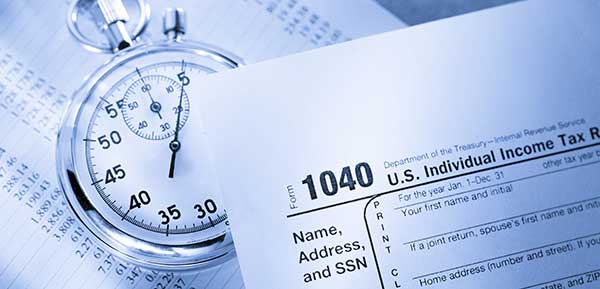
Sometimes despite our best efforts, there are just circumstances that get in the way of our being able to meet the tax-filing deadline. Whether it’s a busy work schedule, a national calamity, a disorganized bookkeeping system or a lack of proper guidance; even the best-laid plans can spiral out of control and we simply can’t make it on time.
Don’t look so grim as it’s not the end of the world. You can certainly work your way out of this sticky situation with the guidance of a professional, such as a tax attorney or a CPA.
Here are some of the things you need to know if you’re going to be filing late this year:
Are you expecting a tax refund? Good thing!
If you are due for a tax refund then you have nothing to worry about. If you haven’t received last year’s refund, you have until April 18, 2020 to sort things out with the IRS. However, if by this date, you still haven’t filed, the National Treasury will consider your refund as a donation and you will no longer be able to receive this amount.
If you still owe taxes, make sure to file your tax return at the soonest possible time.
Even if you still have a balance with the IRS, you should still file your taxes as soon as possible because the penalty for being late can be up to 10 times more expensive than the amount you actually owe. Try to keep in mind that the longer you delay filing your taxes, the deeper the legal trouble you will have to face.
You can still file your taxes even if you miss the deadline.
One of the most common misconceptions about missing the tax-filing deadline is thinking that you can no longer file your taxes altogether. This is not true. You can still file, you will however be required to pay a penalty for late submission.
The penalty for filing taxes late can amount to 5% to 25% of your balance per month; so it is also necessary for you to pay all of your unpaid dues before you file.
Request for a tax filing extension as soon as possible.
If you have already missed the deadline, have your Form 4868 ready. You should file for a tax filing extension to curb any additional penalties. Once approved, you will gain an additional six months to get everything sorted out.
In order to get approved for a tax filing extension, you will need to observe the following policies:
- Pay your unpaid balance to the IRS to avoid the “failure to file” penalty.
- File for an extension both at the Federal level and at the State level. This is especially true for areas stricken by a national calamity. Check with your state government to know any specific filing procedures in your location.
Apply for an installment agreement if you cannot afford to pay your balance in full.
Check the IRS website for the IRS Online Payment Agreement Tool and you can set up payment terms if you need more time to pay your balance. You can link up a debit agreement plan with the IRS so you don’t have to issue monthly checks.
Just hire a professional!
If you want to make sure that all legalities and procedures are done right, nothing beats having an attorney or CPA to guide your way. Ann Arbor CPA provides professional tax filing and accounting services in Michigan. Call us at (734) 663-1313 to find out how we can help!
You can also visit our social media accounts to learn more: Ann Arbor CPA Facebook Fan Page | Ann Arbor CPA Twitter Account
Recent Comments